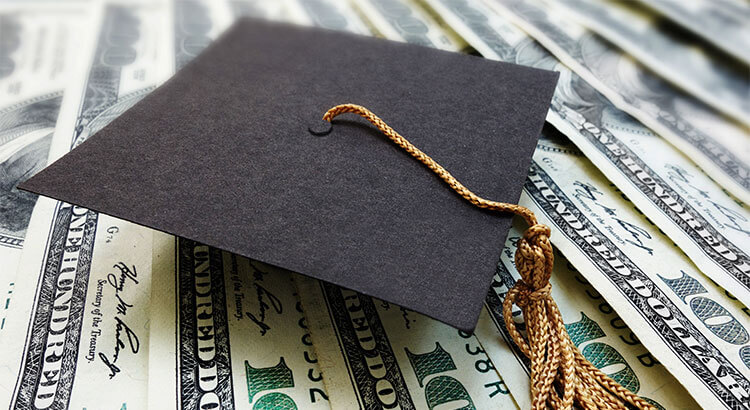Is Student Loan Debt A Threat to Homeownership? No!

Over the course of the last thirty years, a shift has happened. An entire generation has been raised to believe that a college education is their key to unlocking opportunities that were not available to their parent’s or grandparent’s generations.
Due to this, student loan debt has soared to $1.5 trillion and represents the largest category of debt, surpassing credit card and auto loan debt in 2010 and never looking back. As more and more Americans continue their education amongst rising tuition costs, this number will no doubt increase.
Many housing experts have blamed student loans for a drop in the homeownership rate for young families, and to an extent, they’ve been right. Increased debt at the time of graduation has no doubt limited young people from being able to afford a home at the same rate as their parents or grandparents did at the same age.
In a recent Forbes article, the author explained that “in just the class of 2017, the average student has about $40,000 in debt — almost enough for a 20% down payment on a median-priced home.”
The Federal Reserve set out to determine exactly how much impact student loan debt has had on the homeownership rate of those 18-34 (millennials). Their results found that,
“Every $1,000 in student loan debt delays homeownership by about 2.5 months, but it doesn’t prevent homeownership entirely.
In fact, by the time college grads reach their 30s, those with student loan debt have a homeownership rate nearly identical to those who didn’t take out loans.” (emphasis added)
In the Wall Street Journal’s coverage of the Fed report, they found that recent graduates prioritize paying off their student loans over saving for a down payment, despite their desire to be a homeowner. Many with debt want to “get that monkey off (their) back (before they) make any new investments.”
This has just delayed the wave of young home buyers from hitting the market. But as Danielle Hale, the Chief Economist at realtor.com warns,
“2020 will be peak millennial, the year when the largest number of millennials will turn 30.”
By age 30, those who attained a bachelor’s degree right after high school will be one or two years away from paying off their loans and will have been in their career long enough to earn a higher salary.
In the long run, research shows that attaining a bachelor’s degree or more actually increases the chances that someone will become a homeowner.
Bottom Line
If you are one of the many millennials who has prioritized paying down your student loans over saving for a down payment, you’re not alone. Even if you are a couple years away from paying off your loans, let’s get together to help you determine if waiting really is the best decision for you!
To view original article, visit Keeping Current Matters.
Why Moving to a Smaller Home After Retirement Makes Life Easier
As you approach retirement, its important to think about whether your current home still fits your needs.
Why Your Asking Price Matters Even More Right Now
Accurate pricing depends on current market conditions – and only an agent has all information necessary to price your home correctly.
Not a Crash: 3 Graphs That Show How Today’s Inventory Differs from 2008
Inventory levels aren’t anywhere near where they’d need to be for prices to drop significantly and the housing market to crash.
Real Estate Still Holds the Title of Best Long-Term Investment
Homeownership has long been tied to building wealth—and for good reason.
What To Do When Your House Didn’t Sell
If you want an expert’s advice on why your home didn’t sell, rely on a trusted real estate agent.
Do Elections Impact the Housing Market?
While Presidential elections do have some impact on the housing market, the effects are usually small and temporary. For help navigating the market, election year or not, let’s connect.





